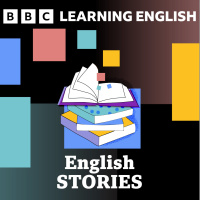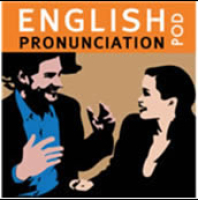Synopsis
Go Natural English helps you improve your English listening skills and fluency. The podcast will benefit intermediate to advanced learners most. Your English will benefit from language learning strategies that work, vocabulary and idioms, expressions, and phrasal verbs and how to make small talk and real conversation in American English. Learn special tips on American culture, how to listen to and speak with Americans. Join Gabby and the Go Natural English community to learn to speak American English like a fluent native!
Episodes
-
Fluency Comes from Relaxing and Enjoying English
23/06/2015 Duration: 07minHave you ever tried to pick up a new skill and find yourself getting frustrated because you didn’t get it as quickly as you thought you should? Well, can be a common occurrence in language learning because there is so much to take in. If you are making yourself tense because you’re not becoming fluent in English as fast as you would like, maybe you’re trying too hard. In this podcast episode, Gabby talks about a time when she was trying to learn a new skill – scuba diving – and how she made herself relax so she could actually enjoy the experience of learning the sport. Gabby explained that learning English could bring about the same anxieties and frustrations, and the way to overcome that is to relax, take a breath, and enjoy the English language journey. You will find that you learn more, and that you learn quicker if you are able to have fun along the way. Learning English is a new skill, and it requires the same effort as learning any other skill. Don’t get nervous, or anxious, and certainly don’t hype
-
-
-
What are the most common verb grammar tenses that native speakers use in American English?
19/06/2015 Duration: 03min -
Lessons Learned from a Dangerous Way to Learn a Language
18/06/2015 Duration: 07minHow far would you go to learn English? What types of situations will you put yourself in to make your English-learning experience better? In this podcast Gabby relates a story about her travels in Japan, and how she found herself in a situation where she had to speak Japanese because she was with someone who spoke no English at all. One of the best things you can do if you are really serious about learning English is to speak English as much as you can, even if you could take the easier path and speak your native language. If you put yourself in those types of positions, you will be amazed at how friendly and helpful people can be. If you make the effort to communicate in English with native English speakers, they in turn will encourage you, and appreciate your effort. You will almost certainly learn new words and phrases that will help you communicate better the next time. So, if you are serious about learning English, visit gonaturalenglish.com and let Gabby take you on an English-speaking journey. And
-
How to Write for an ESL Test - Samples and Best Advice for English Learners
17/06/2015 Duration: 02min -
Are You Afraid People Think Your English is Bad?
16/06/2015 Duration: 05minAre you a non-native English speaker who is constantly worried about what other people think of your language skills? Then this podcast episode is for you. Listen as Gabby provides some useful tips and encouragement for you to feel better about yourself. Learning another language is hard. It may be easier for some people than others, but it is never a simple task. Most people, whether they would admit it or not, struggle to grasp certain spellings, pronunciations or grammatical structures. Fortunately, the more you practice, the more you learn, and the easier it gets. Anybody who has ever persevered in the learning of a foreign language knows all too well about embarrassing moments either in speaking or writing. Learn from your mistakes. Ask your peers, or your teachers to provide constructive feedback so you can improve and move forward. The key is not to give up out of frustration or fear of what others may be thinking. Whether you are an advanced English speaker or a novice, Go Natural English is there
-
-
9 Brand Names in English We Use Instead of the Dictionary Vocabulary Word
12/06/2015 Duration: 06min -
KNOW vs NOW -- Learn the Difference of these Two Commonly Confused Words in American English
12/06/2015 Duration: 02min -
Helping Native English Speakers Helps Your Fluency
11/06/2015 Duration: 04minIf you love to travel, visit foreign lands, and meet interesting people, then learning a little of the country’s language will help you enjoy the experience that much more. Generally speaking, if you try to speak with people in their own language, they will go out of their way to communicate with you, and help you if you need assistance. In this podcast, Gabby talks about an experience she had while traveling around Japan, and how meeting people in the rain presented an opportunity to practice communication skills. In fact, if you put forth a little effort, opportunities to communicate and interact with others can be found just about everywhere. The key is to put yourself in those situations where you will be able to communicate, and you will be amazed at how much better your understanding of English will become. Be sure to reach out to Gabby either at gonaturalenglish.com, or Facebook, or Twitter and don’t be shy. Ask questions, make comments, express yourself, and improve your English fluency at the sam
-
What is the Difference Between Supposed to and Should -- Learn American English
10/06/2015 Duration: 01min -
Could You Repeat That_ When (not) to Ask for Repetition as an English Learner
09/06/2015 Duration: 07minYou find yourself in a foreign country and you decide you want to meet the locals and start a conversation with them. That’s a great idea because we learn by practicing with native speakers. But have you looked ahead and thought about what you would say if you did not understand something that was said to you? You should have a plan because this is a scenario that happens all too often. In this podcast, Gabby takes a look at just that situation and offers five phrases that might help you avoid embarrassing encounters. Now, these aren’t the only ways to ask for repetition or clarification, but they are five of the more common ways. One of the most common reactions in these situations is frustration but if you persevere and make the effort to really understand what was said, you will go a long way toward fluency in the language. At Go Natural English, Gabby tackles these types of frustrating situations and offers tips on how to make the most of your opportunities for conversation with native speakers. Lea
-
How can I use Angry about, with or at Learn American English Phrasal Verbs
08/06/2015 Duration: 04minHave you ever been angry? Anger is an extremely intense emotional reaction. In this English tip, Gabby explains three phrases that are commonly used in English conversation – “angry about”, “angry with”, and “angry at.” You must be able to express yourself when talking about your emotions and anger is certainly a very strong emotion. In this English tip episode, Gabby explains how native English speakers use these phrases and under what circumstances. The key thing to remember is that “angry with” generally refers to people. You might hear, “I am so angry with my brother for embarrassing me in front of my friends.” The phrase “angry at” will also refer to people. You might hear, “I am angry at the coach for trading the star player.”The phrase “angry about” typically refers to situations. You could hear phrases like, “I am angry about the court’s decision this afternoon.” English is a challenging language but like any other language, you can master it with practice and repetition. Go on over to gonatur
-
What is the difference between I was there and I had been there? Learn English Grammar
06/06/2015 Duration: 04minEnglish, like most languages, makes use of tenses. English actually has six tenses but for general conversational English, they are not normally all used. Conversational English by its very nature tends to be less formal and restrictive than the written language. In this English tip, Gabby speaks about the simple past tense of the verb “to be” which is “was.” For example, you might say, “I was an Exchange student in the year 2000.” The past perfect tense, on the other hand, might read, “I had been studying English when my little sister was born and I had to return home to help my parents.” In normal conversation, most people use the simple tenses. If you want to blend in and sound more like a native speaker, it’s important not to speak in a stiff, awkward manner. The best way to do this is to practice, practice, and practice some more. Go Natural English exists to help you become more natural and fluent in your English language skills.
-
How to Use Going to and Will Learn English Grammar
05/06/2015 Duration: 05minHave you decided yet that you are going to learn English, or will you choose another language? Learning to understand a language is a choice, and that choice is yours. The difference between using “going to” and “will” is not very large and native English speakers are going to understand what you mean. So fear not, and forge ahead in your quest to improve your English. The phrase “going to” is often used to speak of the future but with a link to the present. For instance, you might say, “I think it’s going to snow because the sky looks ominous.” If, on the other hand, you are looking to the future with no real attachment to the present, use “will.” An example of this would be, “Those suitcases look heavy. I will carry them for you.” Although some English grammar rules like these have subtle differences. It is often these subtle differences that make you appear to be more in command of English, and therefore, make you seem more like a native English speaker. Make your way to Go Natural English now, an
-
What does "Movement" mean? How to Learn and Remember American English Vocabulary
03/06/2015 Duration: 02minHave you ever wondered what it would be like to be part of a movement? A movement could be as simple as a leaf rustling in the summer breeze, but that’s not what we are talking about here. We’re referring to a social movement, the idea of teaching and learning English in a new and creative way. In this lesson, Gabby speaks about teaching English naturally, conversationally, in the way people actually use the English language. The great thing is that movements can involve one person or many people. Learning anything is generally comprised of both a theoretical portion, and a practical application. Learning English with a textbook is a good start but the practical application comes when you start practicing with native speakers. Start, or join a movement. Get yourself over to gonaturalengish.com and move forward in your English learning journey. Read as much English as you can, listen to as many native English speakers as you can, and certainly seek out native speakers with whom you can converse on a variety
-
How to pronounce READ - Learn American English Pronunciation
02/06/2015 Duration: 03minLearning English can be a full time and sometimes frustrating job. It is possibly the craziest language on the planet and yet it is spoken by one in seven people. Very often English teachers have to Very often English teachers have to explain things that don’t really make sense, nor do they seem to follow any set of logical rules. Let’s face it, English pronunciation, by and large, is unpredictable. It takes effort and practice to get it right, or at least get close to the correct pronunciation. In this lesson, Gabby examines the past, present, and future tenses of the word “read.” She explains that in the present and future tenses, “read” is pronounced like “reed”, whereas in the past tense, it is pronounced “red” like the primary color. The more you listen to native English speakers, and pay attention to how they speak, the better your English will be. Try to imitate native speakers at every opportunity. Go Natural English will guide you and provide useful tips about how to improve your English skills.
-
2 Ways to Use “Have Had” in a Sentence – Learn English Grammar Present Perfect Tense
22/05/2015 Duration: 04minHave you had enough English this week? Not even close. Come see what you’ve been missing. Go Natural English makes learning an exciting adventure, not something to avoid. In this lesson, Gabby makes it easy to see events in time by using the terms “have/has had”. This is a way of using the present perfect tense in English to take an event from the past and connect it to the present. This is a technique describing an event that has not necessarily been completed. If you say, “I had to study a lot this week”, it indicates that the act of studying was started and completed. However, by saying, “I have had a lot of studying this week”, it indicates that while you had a lot of studying so far this week, there might be more studying to come. English is a living language. Becoming fluent will help you meet people, develop relationships, and accomplish things. Understanding the terms, “have/has had” will let you speak conversationally and express yourself more clearly. Go Natural English will not only incre
-
Best Advice – How to Improve Speaking & Conversation in General in English
20/05/2015 Duration: 04minSpeaking skills are very important when communicating with others especially when you are using a foreign language. In this video episode, Gabby answers a question from a Go Natural English community member. What is the best way to improve speaking and conversation in general in English? Gabby introduces a method called “Copying and Pasting” -- it is like the simple copy paste that we usually do on our computers. One example that was mentioned in the video was when she met a French couple. She is not that familiar with the language, so what she did was copying what the French people said based on the context of the conversation. Try to do it whenever you are communicating with a native speaker. Listen carefully to the phrases that they utter, then copy or repeat it whether with the same person or to others to sound natural. Sound like a native English speaker. Make the English language part of you daily life and see your improvements in no time. Click here to watch the video on YouTube Photo Credi














